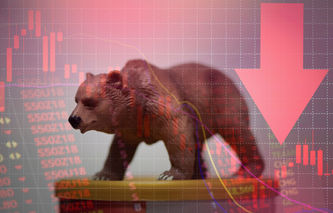Definition
The term market trend is used to describe the upward or downward movement of a financial market over time. Market trends fall into one of three classifications: secular, primary, and secondary.
Explanation
Financial markets have a tendency to move in either an upward or downward direction over time. The duration of that trend will determine if it is classified as secular, primary, or secondary. The difference between these three trends is described below.
Secular Trend: consists of a series of primary trends in the same direction, with corrections of relatively short duration. A secular trend can last anywhere from five to as many as 25 years. For example, a secular bull market will consist of a series of bull markets that dominate an occasional bear market.
Primary Trend: the most commonly discussed market trend, a primary trend will last for twelve months or more. A bear market is a decline in the value of a financial market over time, while a bull market is a rise in the value of a financial market over time.
Secondary Trend: relatively short in duration, lasting only a few weeks to months, a secondary trend is a reversal of a primary trend. If the primary trend is bullish, the secondary trend would be a bear market, which is referred to as a market "correction." If the primary trend is bearish, the secondary trend would be a bull market, which is referred to as a "suckers" rally.
Cryptocurrencies are a good market trend example. As the volatility of the crypto market is really high. For example, cryptocurrency statistics show that "Bitcoin has increased in value from 2012 to April of 2022 by 208,900%"





